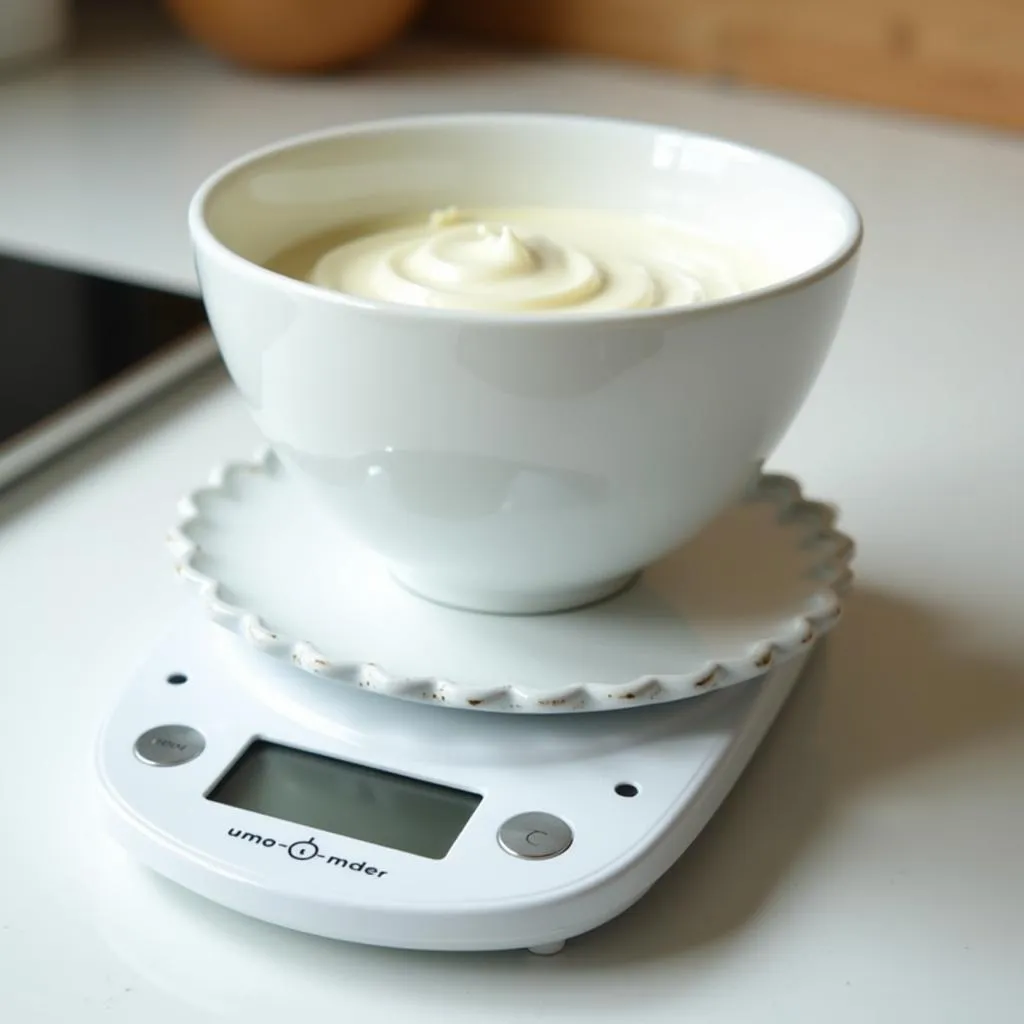When it comes to healthy snacks and versatile ingredients, yogurt often takes center stage. But how much yogurt is actually in “1 cup”? Understanding the weight of 1 cup of yogurt in grams can be surprisingly helpful, especially for those following specific recipes or dietary plans. Let’s delve into the world of yogurt measurements and clear up any confusion!
Why Grams Matter More Than Cups
You might be wondering why we’re focusing on grams instead of simply sticking with cups. While cups seem convenient, they don’t always provide the most accurate measurement.
- Ingredient Consistency: Yogurt, unlike water or flour, can vary significantly in thickness and density. A cup of Greek yogurt will weigh considerably more than a cup of regular yogurt due to its lower moisture content.
- Recipe Precision: Baking and cooking often demand precision. Using grams ensures you’re adding the exact amount of yogurt needed, leading to more consistent results.
- Nutritional Tracking: If you’re tracking your calorie or macronutrient intake, grams provide a more precise measurement than volume.
 Weighing Yogurt on a Kitchen Scale
Weighing Yogurt on a Kitchen Scale
So, How Many Grams Are in 1 Cup of Yogurt?
The answer, as with many things in life, is: it depends. The type of yogurt you’re using plays a crucial role in determining its weight. Here’s a general guideline:
- Regular Yogurt: 1 cup of regular yogurt weighs approximately 245 grams.
- Greek Yogurt: Due to its thicker consistency, 1 cup of Greek yogurt weighs around 265 grams.
- Non-Dairy Yogurt: Weights can fluctuate significantly depending on the base ingredient (almond, soy, coconut). It’s best to refer to the specific brand’s nutritional information.
Important Note: These are approximate values. Always check the nutrition label on your yogurt container for the most accurate weight information.
Factors That Can Affect Yogurt Weight
While the type of yogurt plays the biggest role, there are a couple of other factors that can slightly influence the weight of your 1-cup serving:
- Added Ingredients: Flavored yogurts or those with added fruits, granola, or sweeteners will naturally weigh more than plain yogurt.
- Moisture Content: Yogurt brands can have slight variations in moisture content, which can impact the overall weight.
 Variety of Yogurt Types
Variety of Yogurt Types
Converting Cups to Grams: Quick Tips
- Use a Kitchen Scale: The most accurate way to determine the weight of 1 cup of yogurt is by using a kitchen scale.
- Refer to the Nutrition Label: The nutrition label on your yogurt container will provide the most accurate weight information for that specific brand and variety.
- Online Conversion Tools: Numerous online conversion tools can help you convert cups to grams, but keep in mind these may provide estimates rather than exact measurements.
FAQs
Q: Why is it important to know the weight of my yogurt?
A: Knowing the exact weight of your yogurt is crucial for precise recipe measurements, especially in baking, where ingredient ratios can significantly impact the final result. Additionally, it’s helpful for those tracking their calorie or macronutrient intake accurately.
Q: Can I use a measuring cup to get an accurate weight of yogurt?
A: While measuring cups are great for liquids, they might not be the most accurate for measuring yogurt due to its varying thickness and potential for air pockets. Using a kitchen scale is always recommended for precise weight measurements.
Q: Does the fat content of yogurt affect its weight?
A: While fat content can influence the density of yogurt, the impact on the weight of a 1-cup serving is generally negligible.
Need More Culinary Conversions?
Check out these helpful resources on our website:
Need further assistance with your culinary queries? Contact us at Phone Number: 0372999996, Email: [email protected], or visit us at 236 Cầu Giấy, Hà Nội. Our dedicated customer support team is available 24/7 to assist you.
